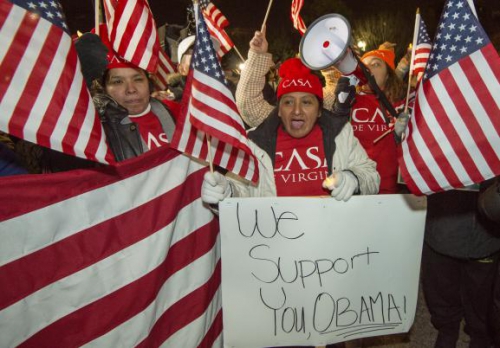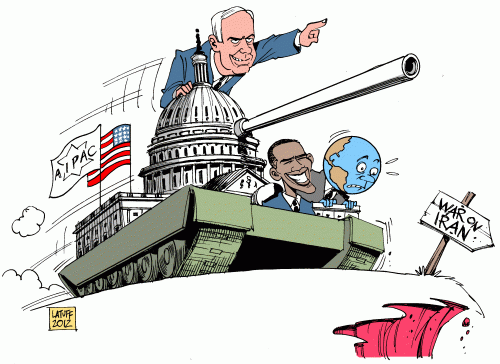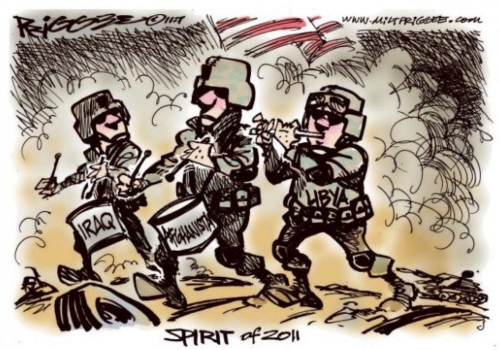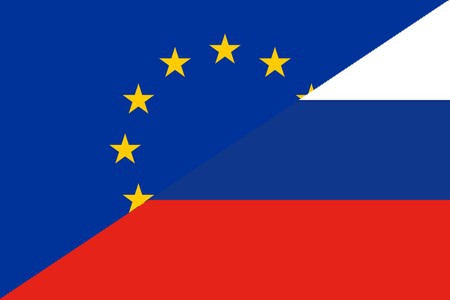Dans mes deux articles précédents, « Un accident bizarre qui en rappelle un autre » et « Un embarras TOTAL », j’ai souligné les ressemblances entre les circonstances de la disparition d’Enrico Mattei, le PDG de la pétrolière nationale italienne ENI au début des années 1960, et celle de Christophe de Margerie, le PDG de TOTAL, survenue il y a un peu plus d’un mois à l’aéroport Vnoukovo de Moscou.
J’ai également démontré que les États-Unis étaient à l’origine de la première, et qu’il existait d’excellentes raisons de croire qu’ils étaient aussi à l’origine de la seconde. En effet, autant Mattei que de Margerie constituaient des menaces claires à leurs intérêts pétroliers et financiers, en plus de défier ouvertement leur hégémonie mondiale, et la menace posée par de Margerie était sans doute encore beaucoup plus existentielle que celle qu’avait posée Mattei, comme nous allons le voir un peu plus bas.
Mon intérêt pour cette affaire s’explique à la fois par les connaissances que j’ai acquises au cours de ma carrière au service de deux grandes multinationales du pétrole, ESSO (maintenant connue sous le nom d’Exxon Mobil), et Texaco (aujourd’hui intégrée à Chevron), et par celui que j’ai développé pour l’Empire Desmarais, à la tête du grand conglomérat financier canadien Power Corporation, associé au groupe belge Frère, les deux étant d’importants actionnaires de TOTAL par le truchement d’une structure suisse de coparticipation, Pargesa SA, constituée par leurs soins.
Au Québec, comme j’ai eu l’occasion de le démontrer dans deux ouvrages récents, Desmarais : la Dépossession tranquille, et Henri-Paul Rousseau, le siphonneur de la Caisse de dépôt parus respectivement à Montréal aux Éditions Michel Brûlé en 2012 et 2014, les visées de l’Empire Desmarais sur ces principaux leviers de développement que sont Hydro-Québec et la Caisse de dépôt et de placement sont carrément prédatrices et spoliatrices.
L’intérêt soulevé par mon second article (repris sur plus d’une vingtaine de sites dont vous trouverez les liens à la fin de celui-ci), et notamment en Europe, m’a convaincu de pousser plus loin mon enquête, en m’intéressant non pas tant aux circonstances de l’accident/attentat – aucun nouvel élément n’a été rapporté depuis deux ou trois semaines - qu’à la conjoncture géopolitique internationale dans laquelle il est survenu, à la place qu’y occupe le pétrole, au rôle qu’y joue TOTAL, et à celui qu’y jouait son PDG Christophe de Margerie jusqu’à son décès.
La conjoncture géopolitique actuelle est l’une des plus tendues depuis la fin de la guerre froide. Alors que les États-Unis croyaient être parvenus, au tournant des années 1990, avec la chute du mur de Berlin et la dislocation de l’URSS, à asseoir leur domination sur le monde, les voici aux prises avec une concurrence nouvelle animée non plus par la recherche d’une confrontation entre deux idéologies (capitalisme et communisme), mais plutôt par la vision pluripolaire des puissances émergentes (Brésil, Russie, Inde, Chine, Afrique du Sud) réunies dans le BRICS, et opposées à toute forme d’inféodation, politique, économique ou culturelle.
À cette menace politique se rajoute le spectre d’un important déclin économique qui ne ferait qu’amplifier la première. En effet, s’étant rendus compte au début des années 1980 que leur structure de coûts de production était de moins en moins concurrentielle, les États-Unis poursuivent depuis lors une politique de libéralisation systématique des échanges commerciaux internationaux dont les effets les plus pervers ont été la désindustrialisation de leur économie et un appauvrissement collectif qui se manifeste dans la disparition rapide de leur classe moyenne.
Les bénéfices escomptés de la financiarisation de leur économie ne sont pas au rendez-vous. Non seulement alimente-t-elle une multiplication de bulles spéculatives qui finissent toutes par éclater éventuellement, mais il n’existe aucun mécanisme de redistribution de la maigre richesse qu’elle crée, et le fossé des inégalités sociales en train de se creuser constitue une menace sérieuse à leur stabilité politique à moyen et long terme.
L’absence de croissance économique réelle se reflète dans leur degré d’endettement qui se situe désormais parmi les pires du monde développé, et ils sont de plus en plus tentés par des aventures militaires hasardeuses dont ils pensent qu’ils pourraient sortir à la fois vainqueurs sur le plan politique, et renforcés sur le plan économique.
Leur situation se complique dès qu’on y introduit la donnée pétrole dont ils ont longtemps contrôlé le marché.
Au début des années 1970, contraints par l’essoufflement budgétaire causé par leur engagement au Vietnam de renoncer à l’obligation qu’ils avaient acceptée, à la fin de la Deuxième Guerre mondiale, de garantir la convertibilité de leur dollar en or au taux fixe de 35 $ l’once dans le but de relancer l’économie internationale qu’ils étaient bien placés pour dominer, et désireux d’asseoir leur hégémonie économique sur des bases encore plus solides, ils concluent une entente avec la monarchie régnante en Arabie Saoudite en vertu de laquelle celle-ci, devenue le plus important producteur de pétrole, s’engagera à exiger le paiement de toutes ses livraisons en dollars US, en contrepartie d’une garantie par les États-Unis de la défendre contre toute agression militaire.
C’est le début du règne du pétrodollar. L’or noir se substitue très rapidement à l’or métal comme référence dans toutes les transactions internationales, et les deux parties à cette entente vont en profiter immensément pendant une quarantaine d’années.
Au cours de la dernière année, certains événements sont survenus, certains connus, d’autres non, qui ont amené l’Arabie Saoudite à remettre en question son soutien jusque là indéfectible aux États-Unis et au dollar US. Le résultat se reflète ces jours-ci dans la baisse du cours du pétrole. Au moment d’écrire ces lignes, il a perdu près de 40 % de sa valeur depuis juin dernier. Vendredi, et, aujourd’hui le cours du WTI est passé sous la barre des 65 $ $ US alors que le Brent se situe légèrement au-dessus de 70 $.
Un analyste américain allait même jusqu’à prédire ces jours derniers qu’il pourrait même descendre jusqu’à 35 $ l’an prochain si les pays membres de l’OPEP ne parvenaient pas à s’entendre sur une réduction de leurs quotas de production.
Combinés à la remise en question du statut du dollar comme monnaie de réserve mondiale depuis quelques années et aux gestes concrets posés en ce sens par la Russie, la Chine, l’Iran, et quelques autres depuis un an, il est clair que ces événements marquent pour les États-Unis le commencement de la fin de leur hégémonie mondiale. Ils ont toutefois tellement à y perdre qu’ils vont tenter par tous les moyens de maintenir leur emprise, et l’Affaire de Margerie constitue une bonne indication des moyens qu’ils sont prêts à prendre pour éviter le sort qui les attend.
En effet, de Margerie était le PDG de TOTAL, seule entreprise non américaine avec BP à figurer au nombre des « majors » de l’industrie. BP est une entreprise britannique qui a perdu le peu d’indépendance qui lui restait dans la foulée de l’explosion survenue à l’été 2010 sur la plate-forme Deep Horizon dans le Golfe du Mexique, et de la catastrophe environnementale qui s’est ensuivie. Sous haute surveillance des autorités américaines en raison de l’importance des dommages encore non liquidés, l’entreprise est désormais dirigée par un Américain.
En raison de son histoire très complexe et des fusions dont elle est issue, TOTAL fait bande à part. Très tôt, elle a été présente au Moyen-Orient, notamment en Irak, en Afrique du Nord, et en Afrique Équatoriale. Très tôt, l’intérêt stratégique qu’elle revêt pour la France l’a amené à développer un réseau parallèle de renseignement qui a très bien servi les intérêts de la France, ce qui l’a mise à l’abri des remontrances de l’État lorsqu’elle s’engageait dans des coups fourrés, comme ce fut le cas en Iran, en Irak et en Libye au cours des dernières années.

Ainsi, on apprenait encore ces derniers jours que TOTAL avait accepté de verser 400 millions $ US en guise de pénalité pour avoir enfreint l’embargo des États-Unis contre l’Iran au début des années 2000, au détriment de l’américaine Conoco. Voici comment Libération présentait les faits dans son édition du 26 novembre :
Total sera jugé pour « corruption » en marge de contrats en Iran
Le groupe français Total sera jugé en correctionnelle pour « corruption d’agents publics étrangers » en marge de contrats pétroliers et gaziers conclus en Iran dans les années 1990.
Son ancien PDG, Christophe de Margerie, avait également été renvoyé pour ce même chef le 15 octobre, a indiqué mardi à l’AFP une source judiciaire, confirmant une information de Charlie Hebdo. Mais les poursuites le concernant se sont terminées avec son décès quelques jours plus tard à Moscou.
Cette enquête ancienne porte sur un peu plus de 30 millions de dollars qui auraient été versés à partir d’octobre 2000 en marge de deux contrats du géant français en lien avec l’Iran dans les années 1990, sur fond d’embargo américain.
Le principal contrat, d’une valeur de 2 milliards de dollars, avait été conclu le 28 septembre 1997 avec la société pétrolière nationale iranienne NIOC et concernait l’exploitation - par une coentreprise réunissant Total, le russe Gazprom et le malaisien Petronas - d’une partie du champ gazier de South Pars au large de l’Iran, dans le Golfe. Washington avait menacé les pétroliers de sanctions pour ces investissements.
Le second contrat visé par l’enquête avait été conclu le 14 juillet 1997 entre Total et la société Baston Limited. Il était lié à un important accord conclu deux ans plus tôt, le 13 juillet 1995, pour l’exploitation des champs pétroliers iraniens de Sirri A et E, également dans le Golfe.
Total avait alors bénéficié du retrait de l’Américain Conoco, contraint de céder la place après que l’administration Clinton eut décrété un embargo total sur l’Iran.
Dans l’enquête ouverte en France fin 2006, Christophe de Margerie avait été mis en examen en 2007 par l’ancien juge d’instruction Philippe Courroye pour « corruption d’agents publics étrangers » et « abus de biens sociaux ». M. de Margerie était à l’époque des faits directeur pour le Moyen-Orient du géant français.
« Réels problèmes juridiques » -
Les juges d’instruction ont finalement ordonné en octobre le renvoi en correctionnelle de Total et de Christophe de Margerie pour les faits de « corruption d’agents publics étrangers », selon la source. Ils n’ont pas retenu l’abus de biens sociaux contre le patron du groupe.
Christophe de Margerie a péri dans la nuit du 20 au 21 octobre quand son Falcon a percuté un chasse-neige au décollage à l’aéroport Vnoukovo de Moscou.
Deux intermédiaires iraniens sont également renvoyés pour complicité : l’homme d’affaires et lobbyiste Bijan Dadfar, qui travaillait pour Baston Limited, et Abbas Yazdi, un consultant pétrolier.
Interrogé sur cette affaire en juin 2013, alors que le parquet de Paris venait de requérir son renvoi et celui de Total, Christophe de Margerie avait réfuté les accusations de versement « de pots-de-vin » ou de « rétrocommissions » : « ce que nous avons fait dans les années 90 était effectivement conforme à la loi », avait-il déclaré au Grand Jury RTL/Le Figaro/LCI.
Sollicité par l’AFP, l’avocat de Total, Me Daniel Soulez-Larivière, a estimé mardi que ce dossier posait « de réels problèmes juridiques ».
D’une part parce que les contrats sont antérieurs à l’entrée en vigueur en France en 2000 de la convention de l’Organisation de coopération et de développement économiques (OCDE) prohibant la corruption d’agents publics étrangers.
D’autre part parce que, visé par des poursuites aux Etats-Unis pour ces contrats, Total a accepté en 2013 de transiger pour clore la procédure, moyennant le versement de près de 400 millions de dollars. Or, selon la règle dite du « non bis in idem », nul ne peut être poursuivi ou puni plusieurs fois pour les mêmes faits, relève l’avocat.
Première entreprise de l’Hexagone par les bénéfices et deuxième par la capitalisation boursière, Total avait bénéficié en juillet 2013 d’une relaxe dans le procès « pétrole contre nourriture ». Mais le parquet a fait appel de cette décision.
L’invocation de la règle « non bis idem idem » paraît un argument bien faiblard à l’avocat québécois que je suis dans la mesure où les faits reprochés à TOTAL tombent sous le coup des lois de deux pays différents, qu’ils ne sont pas de même nature dans les deux pays, et qu’aux États-Unis, un règlement négocié est intervenu sans qu’un jugement de culpabilité n’ait été prononcé. Mais bon, je ne prétends pas connaître le droit français.
En ce qui concerne les faits survenus en Irak, il s’agit de malversations survenues entre 1996 et 2002 dans le cadre du programme humanitaire Pétrole contre nourriture mis sur pied par l’ONU dans la foulée de l’embargo du Conseil de sécurité contre l’Irak . Voici comment Le Figaro rapportait les faits le 2 août 2011 :
« Pétrole contre nourriture » : Pasqua et Total seront jugés
En dépit du non-lieu requis par le parquet de Paris, le juge d’instruction a décidé de renvoyer devant le tribunal correctionnel le groupe pétrolier et 19 personnes, dont son PDG Christophe de Margerie et l’ancien ministre de l’Intérieur.
L’affaire « pétrole contre nourriture », dans laquelle sont impliquées plusieurs personnalités françaises, vient de connaître un rebondissement spectaculaire. Alors que le parquet de Paris avait requis par deux fois, en 2009 puis en 2010, un non-lieu, le juge Serge Tournaire a pris la décision de renvoyer devant le tribunal correctionnel 19 personnes, dont l’ancien ministre Charles Pasqua et l’actuel PDG de Total Christophe de Margerie. La société Total sera également jugée en tant que personne morale.
Cette décision de justice, prise le 28 juillet, a été révélée par Charlie Hebdo avant d’être confirmée mardi par une source judiciaire. Le parquet n’ayant pas fait appel de la décision dans les cinq jours qui ont suivi l’ordonnance du juge, le procès est inévitable. Il ne devrait toutefois pas se tenir avant 2012.
Les accusés sont soupçonnés de malversations dans le cadre du programme « Pétrole contre nourriture ». Ce dispositif, mis en place par l’ONU entre 1996 et 2002 a permis au régime de Saddam Hussein, alors soumis à un embargo du Conseil de sécurité, de vendre son or noir en échange de denrées alimentaires et de médicaments.
Pasqua accusé de corruption et de trafic d’influence
La justice soupçonne les dirigeants de Total d’avoir mis en place un système de commissions occultes afin de bénéficier de marchés pétroliers et d’avoir contourné l’embargo en achetant des barils de pétrole irakien via des sociétés écrans. La société est ainsi poursuivie pour corruption d’agents publics étrangers, recel de trafic d’influence et complicité de trafic d’influence. Son PDG actuel, Christophe de Margerie, est renvoyé pour complicité d’abus de biens sociaux. « Nous sommes confiants dans l’issue du procès et sur le fait qu’il sera établi que Total ne peut se voir reprocher les faits cités », a réagi le groupe pétrolier.
Les autres personnalités françaises impliquées auraient touché leurs commissions sous forme d’allocations de barils de pétrole. Deux anciens diplomates de haut-rang seront ainsi traduits pour corruption : Jean-Bernard Mérimée, ambassadeur de France à l’ONU de 1991 à 1995, et Serge Boidevaix, ancien secrétaire général du Quai d’Orsay. Charles Pasqua devra lui se défendre des accusations de corruption et de trafic d’influence pour des faits commis entre 1996 et 2002.
« C’est tout à fait une surprise, et une mauvaise surprise » a immédiatement commenté sur France Info son avocat, Me Léon-Lef Forster. Ce dernier s’est étonné que le juge, qui a repris en 2010 une enquête ouverte en 2002, ait pris sa décision sans même avoir « pris la peine d’interroger (son) client ». Il dit toutefois n’avoir « aucune inquiétude » quant à l’issue du procès.
Dans le volet français de l’affaire, aucune mention du fait que le programme « Pétrole contre nourriture » des Nations Unies était administré par un canadien du nom de Maurice Strong qui se trouve à être un ancien PDG de Power Corporation, l’entreprise de l’Empire Desmarais associé au belge Albert Frère dans la structure de droit suisse qui détient leurs actions dans TOTAL, et dont je parle abondamment dans mon article précédent, Un embarras TOTAL.
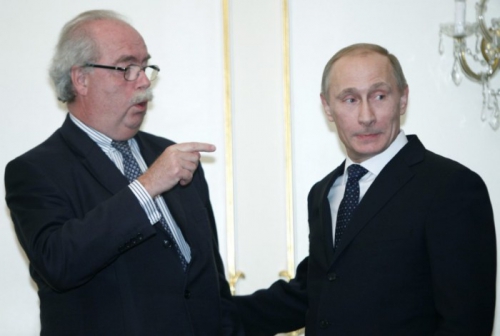
Maurice Strong est aussi un ancien PDG de Petro Canada, de la Corporation de développement des Investissements du Canada et d’Hydro-Ontario. En 2005, alors qu’il occupe la fonction de secrétaire général associé des Nations Unies, il est accusé d’avoir reçu d’un dirigeant irakien un paiement de 1 million de dollars puisé à même le fonds pétrole contre nourriture. Il s’enfuit en Chine, à Pékin, où il dispose de solides appuis politiques. Il n’en est jamais revenu pour faire face aux accusations portées contre lui.
Au Canada, le scandale est vite étouffé vu les liens étroits de Strong avec l’ancien ministre des Finances et premier ministre Paul Martin, lui-même impliqué dans les affaires de Strong et repreneur d’une entreprise que lui a cédée Paul Desmarais. Ceux d’entre vous qui s’imaginent avoir tout vu en matière d’affaires politiques sordides sont invités à prendre connaissance des trois liens suivants : At the United Nations, the Curious Career of Maurice Strong Maurice Strong, et Abel Danger Brief Summary of the Last Six Years : Connecting the Power. Canada’s Power Corporation and Maurice Strong. Ils constateront que le Canada est loin d’être le paradis bénin qu’ils imaginent.
Ils constateront aussi que les affaires de TOTAL et de Strong sont liées, et que le lien entre les deux est l’actionnaire principal de TOTAL, le tandem Desmarais/Frère.
Évidemment, lorsqu’on ajoute à ces deux affaires celle de la Libye que j’ai racontée dans mon article précédent, on comprend que les États-Unis aient pu commencer à s’inquiéter de ce qu’ils percevaient de plus en plus comme une agression contre leurs intérêts par un acteur majeur de l’industrie pétrolière mondiale qu’ils avaient jusque-là eu la naïveté de prendre pour un allié.
En effet, non seulement TOTAL est-elle une entreprise française, donc en principe amie, mais en plus, son conseil d’administration compte des personnes très proches des plus hautes sphères du monde des affaires et de la politique aux États-Unis.
À ce stade-ci, il est important de préciser que le degré de contrôle du tandem Desmarais/Frère sur TOTAL est beaucoup plus important que ne le suggère leur 3,2 % des actions de l’entreprise. Pour établir le degré de leur emprise, il faut examiner les affaires de la Power Corporation de l’Empire Desmarais et du Groupe Bruxelles-Lambert du belge Albert Frère.
Pour ne s’en tenir qu’à celles de Power Corporation, on constate que celle-ci a près de 500 milliards $ US d’actifs sous gestion par l’entremise surtout de sa filiale, la Financière Power, dans laquelle on retrouve des compagnies d’assurance et des fonds de placement au Canada, aux États-Unis, en Europe et en Extrême-Orient. Il est dans la nature des activités de ces entreprises de se constituer d’importants portefeuilles de titres, et il va de soi que chacune d’entre elle détient un important paquet d’actions de TOTAL.
On voit donc que l’influence du tandem Desmarais/Frère dans TOTAL se trouve démultipliée par la quantité d’actions détenue dans celle-ci par les filiales de la Financière Power et le Groupe Bruxelles-Lambert. Et il faut ajouter à cela l’influence qu’ils peuvent détenir en vertu de conventions expresses ou tacites avec d’autres actionnaires ou regroupement d’actionnaires de TOTAL, du genre échange de bons procédés.
Dans ce contexte, c’est avec la plus grande surprise que l’on découvre aujourd’hui sur le site francophone de l’agence de presse russe RIA-Novosti les deux articles suivants :
Total, partenaire prioritaire de la Russie (Poutine)
Le groupe français Total est un partenaire prioritaire de la Russie, et le décès de son PDG Christophe de Margerie est une perte importante pour le pays, a déclaré vendredi le président russe Vladimir Poutine.
"Total est notre partenaire prioritaire depuis de nombreuses années. Nous pleurons avec vous le décès de notre ami, M. de Margerie. Il s’agit d’une lourde perte", a indiqué M. Poutine lors d’une rencontre avec les responsables du groupe français.
Christophe de Margerie est mort dans la nuit du 21 octobre à Moscou dans un accident d’avion à l’aéroport de Vnoukovo.
Deux choses à noter. Premièrement, l’essentiel du message se trouve dans la photo. Et deuxièmement, la rencontre a eu lieu à Sotchi, ville des derniers jeux olympiques. La sécurité de l’aéroport est à toute épreuve... On ne fera pas exprès pour répéter une deuxième fois la même erreur...
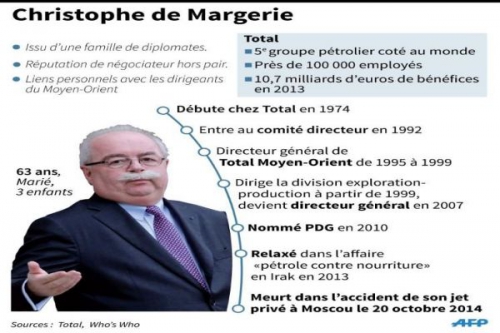
Le second article est encore plus surprenant lorsqu’on connaît les liens de Nicolas Sarkozy avec les pouvoirs américains :
Sarkozy : vouloir la confrontation entre l’Europe et la Russie est une folie
Vouloir la confrontation entre l’Europe et la Russie est une folie, a déclaré jeudi l’ex-président français Nicolas Sarkozy lors de son dernier meeting de campagne pour le premier tour de l’élection à la tête de l’UMP à Nîmes, lit-on vendredi sur son site.
"Nous avons voulu l’Europe pour qu’elle soit, dans le monde, un facteur de paix. Nous n’avons pas voulu l’Europe pour qu’elle ressuscite la guerre froide. Vouloir la confrontation entre l’Europe et la Russie est une folie (…). Comment a-t-on pu espérer résoudre la crise ukrainienne sans discuter avec la Russie ?", a demandé M.Sarkozy dans son discours.Par ailleurs, l’ancien chef de l’Etat français s’est violemment indigné à propos du non-respect du contrat de la France envers la Russie, estimant que Paris devait "honorer sa parole" et livrer les deux navires Mistral à Moscou.
Bien sûr, Sarkozy ne parle plus au nom de la France, et ses paroles n’ont pas l’autorité de celle d’un chef d’État. Mais il se trouve quand même à répéter ce que disaient récemment Henry Kissinger, le très prestigieux ancien chef de la diplomatie des États Unis, et Mikhaïl Gorbatchev, le dernier président de l’URSS. Et est-ce un hasard si Nicolas Sarkozy est aussi très proche des Desmarais et d’Albert Frère ? Quand le hasard fait trop bien les choses, c’est qu’il n’y a pas de hasard, mais bien plutôt une opération planifiée en bonne et due forme.
Nous sommes donc bel et bien en face d’un défi lancé par TOTAL et ses actionnaires à la position des États-Unis. La question qui se pose est de savoir quelle est la position de l’État français dans cette affaire, et elle se pose d’autant plus que TOTAL, sans être une société d’État est une des plus grandes entreprises et que l’État se trouve assurément dans son capital, soit directement, soit par l’entremise d’une institution comme la Caisse des dépôts et consignations (CDC).
Pour comprendre la continuité dans l’action de TOTAL, il est essentiel de connaître le réseau d’influence que de Margerie était parvenu à se tisser au fil de sa carrière. Voici un article paru en 2007dans une publication économique française, L’Expansion, qui jette en outre un éclairage extraordinaire sur la crise actuelle et le rôle qu’y joue le pétrole :
Les réseaux de Christophe de Margerie
Atypique, le nouveau patron de Total l’est jusque dans ses relations, où le " terrain " compte plus que l’establishment.
Ballet de voitures officielles au Quai d’Orsay, le 8 mars. Ce matin-là, les ambassadeurs étrangers sont venus écouter un orateur inhabituel, Christophe de Margerie. Loin des flashs, le nouveau patron de Total, intronisé le 13 février, parle pétrole à ses Excellences. Et renforce ses liens avec la communauté diplomatique.
SES APPUIS PATRONAUX
Albert Frère
Gérard Mestrallet
Anne LauvergeonSi l’actionnaire belge de Total aime le naturel de Christophe de Margerie, le PDG de Suez apprécie surtout son anticonformisme. Les liens du patron de Total avec la dirigeante d’Areva sont aussi de bon augure, alors que le pétrolier n’a jamais caché son intérêt pour la filière nucléaire.
Voilà le style Margerie : des réseaux informels tissés au fil des années, bien loin du très sélect Club des cent et autres Siècle, qu’il fréquente peu. " Il n’est pas un adepte des grands dîners parisiens, déclare Jean-Pierre Jouyet, cousin par alliance et chef du service de l’Inspection des finances. Son point fort, c’est le terrain. " Normal, c’est là que " Big Moustache ", comme on le surnomme dans le Groupe Total, a bâti sa carrière. Notamment au Moyen-Orient, qu’il a parcouru pendant des années, prenant même en 1995 la responsabilité de cette zone. " Du Koweït à Dubaï, il connaît tout le monde, témoigne son amie Randa Takieddine, journaliste au quotidien saoudien Al-Hayat. Les Arabes aiment son sens de l’humour, il a su gagner leur confiance. "
SES CONSEILLERS
Jean Veil
Jean-Marc Forneri
Hubert VédrineL’avocat de Christophe de Margerie n’est pas un intime, mais il dîne régulièrement chez lui, dans son appartement parisien, tout comme Jean-Marc Forneri, banquier d’affaires et ami. Les rapports sont plus professionnels avec l’ancien chef de la diplomatie française, dont le patron de Total apprécie beaucoup les conseils géopolitiques.
Et nouer de vraies amitiés. Comme celle qui le lie à Abdallah ben Hamad al-Attiyah, ministre de l’Energie du Qatar. Quant à Abdallah Jumaa, président de la société d’Etat saoudienne Aramco, il ne passe jamais par Paris sans saluer " l’Oriental ". En Arabie saoudite, Margerie fréquente le prince Saoud al-Fayçal, le ministre des Affaires étrangères, et Ali al-Naimi, le ministre du Pétrole. " Lorsqu’il se rend dans les Emirats et au Koweït, Christophe de Margerie est reçu dans les majlis, les audiences privées accordées par les princes arabes ", commente son ami Jean-Marc Forneri, banquier d’affaires. Les deux hommes se sont connus en 1999. Christophe de Margerie venait d’être nommé patron de l’exploration-production de Total, Jean-Marc Forneri conseillait Petrofina - absorbé par Total la même année. " Déjà, à l’époque, il était à part dans l’univers Total, se souvient-il. Christophe n’est pas ingénieur, il est diplômé d’une école de commerce, l’Escp-EAP. Il a de l’humour, ce qui est rare dans ce milieu. " Fin portraitiste, Christophe de Margerie adore croquer ses victimes en quelques traits acérés. Sa parodie du ministre de l’Economie, Thierry Breton, cherchant à se recaser à la direction de Total, est, selon un proche, " savoureuse ".
SES LIENS MOYEN-ORIENTAUX
Abdallah ben Hamad al-Attiyah
Saoud al-Fayçal
Abdallah JumaaAmi avec le ministre de l’Energie du Qatar, le n° 1 de Total estime le ministre des Affaires étrangères saoudien et le président d’Aramco.
Des rapports distants avec le monde politique
Christophe de Margerie est un patron atypique. Pourrait-il en être autrement quand on descend d’une telle lignée ? Le père vient d’une famille d’ambassadeurs, la mère, Colette, est la fille de Pierre Taittinger, fondateur d’un empire qui mêlait hôtels de luxe (Crillon), champagnes (Taittinger) et marques prestigieuses (Baccarat). " Nous avons longtemps espéré que Christophe dirige le groupe, raconte Pierre-Christian Taittinger, son oncle, maire du XVIe arrondissement de Paris. Il était le seul à avoir l’aval de toute la famille. " Mais Christophe préfère l’or noir à l’or fin. Une décision lourde de conséquences. " Son refus a, en partie, entraîné la vente de nos actifs en 2005 ", lâche l’oncle qui garde des liens " privilégiés " avec son neveu. " Je l’aide quand il a besoin d’informations sur un homme politique. " Précieux pour le patron de Total, qui entretient des rapports distants avec l’establishment. " Il ne grenouille pas dans les cercles parisiens, explique sa cousine Brigitte Taittinger, PDG des parfums Annick Goutal. Je n’ai jamais vu un politicien dîner chez lui. " A droite, on le dit en bons termes avec Dominique de Villepin et Jean-Pierre Raffarin, qui, lorsqu’il était Premier ministre, appréciait ses topos sur l’énergie.
SES RELATIONS POLITIQUES
Jean-Pierre Jouyet
Jean-Pierre Raffarin
Dominique de VillepinL’ex-directeur du cabinet de Jacques Delors et les deux Premiers ministres de Jacques Chirac font partie de ses rares connexions politiques.
Et lui, qui le conseille ? S’il fallait n’en citer qu’un, ce serait Hubert Védrine, l’ancien chef de la diplomatie sous Jospin reconverti dans le conseil, avec qui Margerie partage une certaine vision de la France, éloignée du déclinisme ambiant. " Il est soucieux de l’intérêt national ", ajoute Védrine. " Je l’ai vu rabrouer un diplomate français qui raillait le gouvernement. Il trouvait inadmissible que l’on dise du mal de son pays devant des étrangers ", se souvient Randa Takieddine. Pour défendre ses intérêts, Christophe de Margerie a choisi Jean Veil, le fils de Simone. " Nos deux mères ont des relations amicales ", souligne l’avocat, dont l’associé Emmanuel Rosenfeld gère les deux récentes mises en examen du dirigeant de Total, soupçonné d’abus de biens sociaux et de corruption d’agents publics étrangers en Irak dans le cadre de l’affaire " Pétrole contre nourriture " et en Iran dans le dossier du gaz offshore.
SON CLAN FAMILIAL
Brigitte Taittinger
Colette de Margerie
Pierre-Christian TaittingerSacrée, la famille ! Il est très proche de sa cousine et de sa mère, de précieux conseil, tout comme son oncle, maire du xvie arrondissement.
Des lézardes supplémentaires dans l’image du Groupe Total, après la catastrophe AZF, l’affaire du travail forcé en Birmanie et le naufrage de l’Erika. " Il va devoir travailler sur la communication du groupe ", insiste un proche. Il pourra demander conseil à Anne Lauvergeon, qui, avec Albert Frère et Gérard Mestrallet, est l’une des personnalités du business que Margerie apprécie le plus. Lorsqu’elle est arrivée à la tête d’Areva, l’ancienne sherpa de Mitterrand a mis à mal la culture du secret qui régnait parmi les " nucléocrates " et fait connaître le monde de l’atome au grand public. Avec un succès qui n’a pas échappé à Big Moustache.
Christophe de Margerie en 5 dates
1974 : entrée dans le Groupe Total, à la direction financière
1995 : prend la tête de Total-Moyen-Orient
1999 : devient patron de la branche exploration-production
2006 : mis en examen dans l’affaire " Pétrole contre nourriture "
2007 : devient directeur général du groupe pétrolier
Vous aurez noté au passage le nom de Gérard Mestrallet, l’actuel PDG du groupe GDF-Suez et de Suez Environnement dans lesquels le tandem Desmarais/Frère détient également des participations. Ce qui est beaucoup moins connu est qu’il siège au conseil d’administration de Pargesa SA (dont il a été question plus haut), comme en fait foi le rapport annuel de cette entreprise pour l’année 2013, et qu’il siège au bureau des gouverneurs du Forum international des Amériques qu’organise chaque année à Montréal l’Empire Desmarais.
Il s’agit donc bel et bien d’un défi à la position des États-Unis lancée par TOTAL et ses actionnaires, dont le tandem Desmarais/Frère. La question qui se pose est de savoir quelle est la position de l’État français dans cette affaire, et elle se pose d’autant plus que TOTAL, sans être une société d’État est une des plus grandes entreprises françaises et que l’État se trouve dans son capital, soit directement, soit par l’entremise d’une institution comme la Caisse des dépôts et consignations (CDC) ou l’une de ses filiales.
Jean Pierre Jouyet, secrétaire général de l’Élysée
De plus, le secrétaire général actuel de l’Élysée, Jean-Pierre Jouyet qui, s’il est un ami de longue date de François Hollande, était aussi le cousin par alliance de Christophe de Margerie, comme nous l’apprenait Le Figaro dans un article paru dans la foulée de l’accident/attentat de Moscou, dont voici un extrait très éclairant :
La galaxie politique de Christophe de Margerie
Au plus haut niveau de l’État, l’ancien patron du groupe pétrolier était particulièrement proche de François Hollande. Beaucoup plus qu’il ne l’a jamais été de Nicolas Sarkozy. Christophe de Margerie fut notamment le témoin du mariage de sa cousine, Brigitte Taittinger, avec Jean-Pierre Jouyet, l’actuel secrétaire général de l’Élysée, au côté de l’actuel chef de l’État. Une proximité entre les deux hommes confirmée mardi par le ministre des Finances, Michel Sapin, qui a rappelé que François Hollande et lui-même le connaissaient dans leur « vie privée ». Jean-Pierre Jouyet, devenu de fait le cousin par alliance de Christophe de Margerie, a pour sa part qualifié la relation entre le grand patron et François Hollande de « très conviviale et amicale ».
Avant d’occuper ses fonctions actuelles, Jean-Pierre Jouyet a présidé aux destinées de la CDC et de l’Autorité des marchés financiers (AMF). C’est ainsi qu’il a fait connaissance avec le tandem Desmarais/Frère, comme nous le révèlent les dessous des nombreuses actions en justice entreprises en France et en Belgique par l’homme d’affaires français Jean-Marie Kuhn qui invoque des irrégularités dans la vente de la chaîne de restauration rapide Quick par Albert Frère à une filiale de la CDC qui aurait, sur ordre de l’État français, payé Quick largement au-dessus de sa valeur, versant 800 millions d’euros à M. Frère pour une entreprise évaluée en 2004 à quelque 300 millions d’euros.
Dans une requête au Conseil d’État, le plus haut tribunal français, introduite en août 2012 pour obtenir l’annulation de la nomination de Jean-Pierre Jouyet à la tête de la CDC, dont vous trouverez le texte complet sur Vigile, Jean-Marie Kuhn décrit le stratagème et explique les liens entre Jouyet et le tandem Desmarais/Frère avec un luxe de détails peu flatteur pour les intéressés. Le fait que cette requête ait été jugée irrecevable pour des motifs purement techniques n’enlève rien à l’intérêt des faits et à la lumière qu’ils se trouvent à jeter sur les agissements douteux, et c’est bien peu dire, de nos « élites » économiques et politiques, au Québec comme en France.
En faisant les recoupements nécessaires, des observateurs plus familiers que moi avec les arcanes de la politique française parviendraient certainement à établir un lien entre cette affaire et le fameux déjeuner récent entre Jean-Pierre Jouyet, François Fillon et Antoine Gosset-Grainville.
En effet, le parcours du dernier est très instructif. Voici en effet le résumé qu’en fait Wikipédia :
Antoine Gosset-Grainville
En 1993, à sa sortie de l’Ena, Antoine Gosset-Grainville débute sa carrière à l’Inspection générale des Finances, avant de prendre les fonctions de secrétaire général adjoint du Comité monétaire européen en 1997, puis du comité économique et financier de l’Union européenne à Bruxelles. En 1999, il rejoint le cabinet de Pascal Lamy, commissaire européen chargé du commerce, comme conseiller pour les affaires économiques, monétaires et industrielles.
Avocat aux barreaux de Paris et Bruxelles, il devient en 2002 associé au cabinet Gide Loyrette Nouel, dont il dirige le bureau de Bruxelles jusqu’en 2007.
Il est de 1995 à 2007 coordonnateur de la direction d’études de questions européennes à l’IEP de Paris.
Antoine Gosset-Grainville est appelé comme directeur adjoint de cabinet auprès de François Fillon qui est nommé Premier ministre en mai 2007.
Il quitte Matignon en mars 2010 pour la Caisse des dépôts et consignations dont il devient directeur général adjoint, chargé du pilotage des finances, de la stratégie, des participations et de l’international (1er mai 2010).
À la suite de la décision de Nicolas Sarkozy de reporter la nomination du directeur général de la Caisse des dépôts après l’élection présidentielle de 2012, Antoine Gosset-Grainville a assuré la direction générale par intérim de l’institution du 8 mars au 18 juillet 2012, date de la nomination de Jean-Pierre Jouyet comme directeur général. À ce titre, il a assuré la présidence du conseil d’administration du Fonds stratégique d’investissement (FSI).
En mars 2013, il fonde le cabinet BDGS spécialisé dans les opérations transactionnelles M&A avec trois associés : Antoine Bonnasse, Youssef Djehane et Jean-Emmanuel Skovron.
Les trois hommes ont prétendu ne pas avoir parlé de politique lors de ce fameux déjeuner dont les échos sont même parvenus au Québec. . On s’est gaussé d’eux. Mais si c’était vrai ? En examinant leur profil, on peut facilement comprendre qu’ils auraient tout aussi bien pu parler de l’évolution de certaines transactions auxquelles ils ont été associés. Et si c’est le cas, pourrait-il s’agir de transactions impliquant le tandem Desmarais/Frère ? Fillon et Gosset-Grainville n’ont-ils pas planché ensemble sur le dossier GDF-Suez en 2007 dans des négociations impliquant Albert Frère et Gérard Mestrallet ?
L’écheveau des intérêts publics et privés
Ce que cet embrouillamini démontre, c’est que l’État français, comme l’État québécois d’ailleurs, sert désormais de paravent commode à d’énormes magouilles concoctées par le tandem Desmarais/Frère, et qu’il n’y a plus moyen de déterminer la frontière entre les intérêts privés et les intérêts d’État. On en a eu un excellent exemple récemment lors de la visite du président Hollande au Canada. Il n’était rien d’autre que le commis-voyageur d’intérêts privés au premier rang desquels figurait très avantageusement ceux du tandem Desmarais-Frère, et c’est d’ailleurs de cette façon qu’il s’est comporté, au plus grand ravissement du gouvernement Harper.
La politique de la France ? Il n’en reste rien, comme le démontre l’incapacité de François Hollande à ordonner la livraison des Mistral à la Russie en exécution du contrat qu’elle a signé avec elle. Il est loin le temps où le Gal de Gaulle déclarait que « La politique de la France ne se décide pas à la corbeille » et retirait la France de l’OTAN.
Aujourd’hui, sous les pressions des États-Unis et avec la complicité complaisante de Nicolas Sarkozy et de ses élites, la France a réintégré l’OTAN et en est réduite à jouer les valets de service. Il ne lui reste plus la moindre marge de manœuvre, et elle est en train de perdre à une vitesse ahurissante toutes les caractéristiques qui l’ont différenciée dans l’histoire, comme je m’en rends compte à chaque fois que j’ai l’occasion de m’y rendre. Tant il est vrai, comme le disait encore de Gaulle, que « La France ne peut être la France sans la grandeur. »
Dans cette affaire, les États-Unis ont envoyé à la France un message à la manière du « Parrain », et la France n’est même plus en mesure de les dénoncer ou de leur retourner un message de son cru. Pire, le message en fera certainement réfléchir plus d’un, et François Hollande est peut-être même du nombre.
Pour parvenir à leurs fins, les États-Unis doivent absolument se débarrasser non pas de la Russie dont ils convoitent les richesses naturelles, notamment le pétrole et le gaz, mais de Poutine qu’ils voient comme le principal obstacle à leur dessein. L’opération ukrainienne devait avoir cet effet, mais rien ne fonctionne comme prévu. Poutine, s’il en a profité pour récupérer la Crimée au passage pour des raisons autant historiques que stratégiques, évite soigneusement de s’engager plus loin, et laisse les Ukrainiens de l’ouest et de l’est se déchirer entre eux. Quant aux sanctions commerciales, elles se sont retournées contre les pays européens,
Et à ce dernier égard, la situation va même empirer. Il faut comprendre que la baisse du rouble occasionnée par les sanctions actuelles et la baisse du cours du pétrole ne nuisent pas à la Russie, bien au contraire. Elles la forcent tout d’abord à produire davantage chez elle pour éviter d’être trop pénalisée par ses importations, et elles la rendent beaucoup plus concurrentielle à l’exportation. C’est le principe des dévaluations compétitives qui ont tant profité au développement de certaines économies européennes, et dont elles sont désormais privées par l’existence de l’euro.
Pour ajouter aux difficultés des États-Unis, l’Union Européenne, qu’ils espéraient modeler à leur image, fait eau de toutes parts et menace d’échapper à leur contrôle. L’opération ukrainienne visait donc également à ressouder son unité devant la menace d’un ennemi commun, et elle aurait pu facilement réussir dans le contexte d’une économie florissante.
Mais dans un contexte de crise économique, chacun est tenté de tirer dans le sens de ses intérêts, comme le cas des bâtiments porte-hélicoptères Mistral commandés à la France par la Russie le démontre éloquemment. C’est pourquoi les États-Unis devaient frapper fort, sachant trop bien qu’ il est d’autant plus tentant de demeurer sourd à l’appel de l’unité qu’on risque de perdre beaucoup à y répondre.
Quant à Christophe de Margerie, il est mort d’avoir vécu dangereusement, comme Enrico Mattei. Mais si l’on sait que Mattei n’a jamais eu d’autre souci que de bien servir les intérêts de l’Italie, on est beaucoup moins certain que de Margerie ait été au seul service des intérêts de la France. On a même d’abondantes preuves du contraire. L’homme, ou l’époque ?
Avocat, conseiller en gestion et ancien ministre du Gouvernement du Québec, Richard Le Hir est l’auteur de deux ouvrages récents sur les intérêts de l’Empire Desmarais publiés aux Éditions Michel Brûlé à Montréal :« Desmarais : La Dépossession tranquille », et « Henri-Paul Rousseau, le siphonneur de la Caisse de dépôt ».
Note de Vigile : Voici les adresses des sites européens, nord-américains et africains sur lesquels a été repris Un embarras TOTAL
http://reseauinternational.net/embarras-total/
http://www.comite-valmy.org/spip.php?article5293
http://tsimokagasikara.wordpress.com/2014/11/17/un-embarras-total/
http://www.alterinfo.net/Un-embarras-TOTAL_a108059.html
http://www.echsar.com/article-17620924-Un-embarras-TOTAL.html
http://www.wikups.fr/laffaire_de_margerie_un_embarras_total_richard_le_hir/e/425098
http://fr.novorossia.today/au-coeur-de-l-actualit/un-embarras-total.html
http://ombre43.over-blog.com/2014/11/un-embarras-total.html
http://www.jacques-toutaux.pro/article-l-embarras-total-dans-l-affaire-de-margerie-125040143.html
http://scaruffi.blogspot.ca/2014/11/laffaire-de-margerie-mort-dans-un.html
http://www.soueich.info/2014/11/un-embarras-total.html
http://cpo-auvergne.fr/?p=770#more-770
http://mai68.org/spip/spip.php?article8208
http://www.lebonnetdespatriotes.net/lbdp/index.php/component/k2/item/1309-18112014-un-embarras-total
http://leblogdygrec.blogspot.ca/2014/11/laffaire-de-margerie-un-embarras-total.html



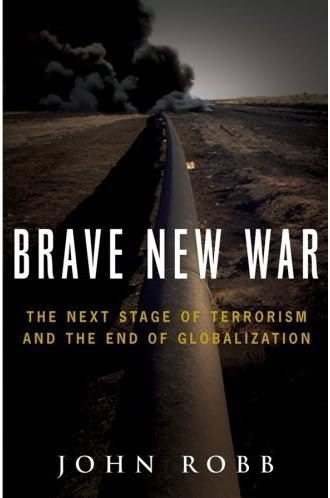

 del.icio.us
del.icio.us
 Digg
Digg
 But every allegation published, and every bit of evidence cited, has been met by suggestions that the whistleblower remains a destabilising influence, whose presence may well impair German-US relations.
But every allegation published, and every bit of evidence cited, has been met by suggestions that the whistleblower remains a destabilising influence, whose presence may well impair German-US relations.
 A second – equally crucial – question turns on the already-deteriorating character of public discourse: feeble resistance to technological authoritarianism in the U.S. is palpable and alarming. Congress has done nothing to tame the juggernaut, while the Obama administration remains essentially content with dancing around the issue, obsessed with Snowden’s notoriety (and imputed criminality). Despite what has been revealed by Snowden – and Bamford and Binney before him – few dare to speak out, surely fearful of being derided as “soft on terrorism”. Further, NSA programs are so “deep”, so shrouded in mystery, that hardly anyone seems able to penetrate the technological fortress sufficiently to fathom what is taking place. And of course NSA work is in highly-classified, including even its budget (estimated at possibly $20 billion yearly).
A second – equally crucial – question turns on the already-deteriorating character of public discourse: feeble resistance to technological authoritarianism in the U.S. is palpable and alarming. Congress has done nothing to tame the juggernaut, while the Obama administration remains essentially content with dancing around the issue, obsessed with Snowden’s notoriety (and imputed criminality). Despite what has been revealed by Snowden – and Bamford and Binney before him – few dare to speak out, surely fearful of being derided as “soft on terrorism”. Further, NSA programs are so “deep”, so shrouded in mystery, that hardly anyone seems able to penetrate the technological fortress sufficiently to fathom what is taking place. And of course NSA work is in highly-classified, including even its budget (estimated at possibly $20 billion yearly).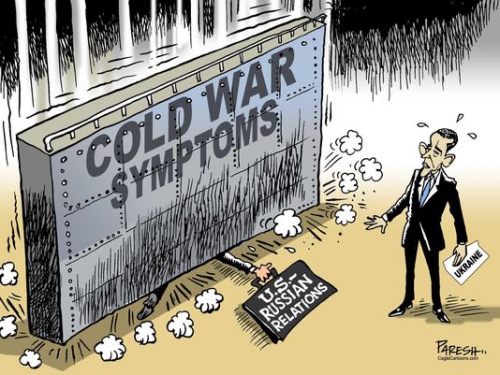

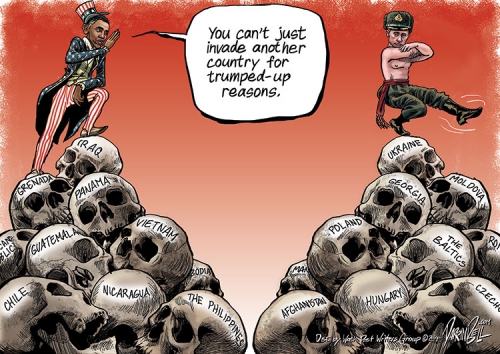

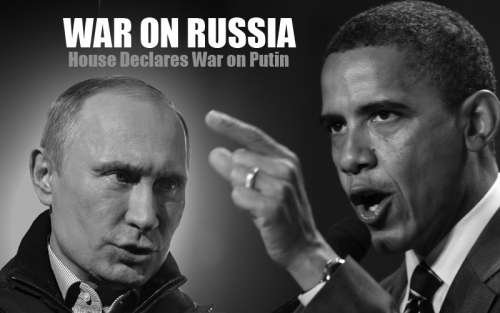



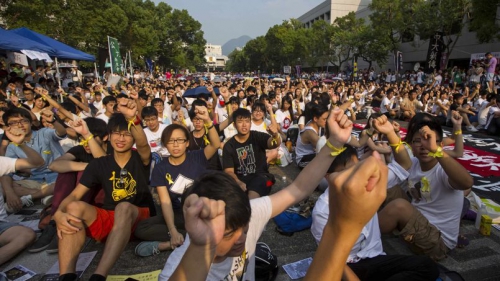

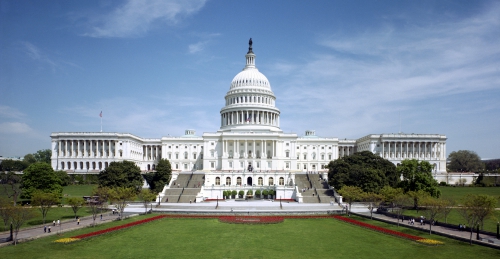
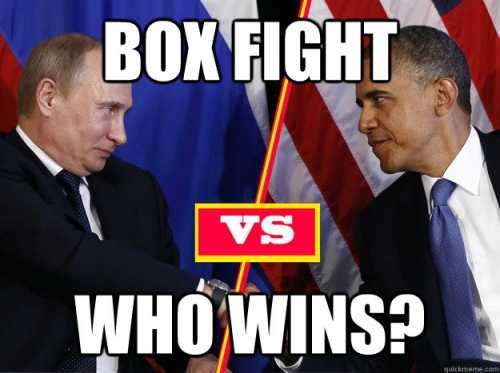
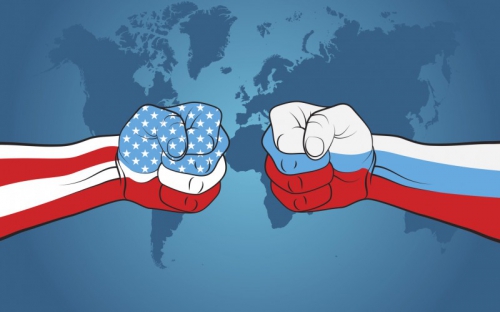
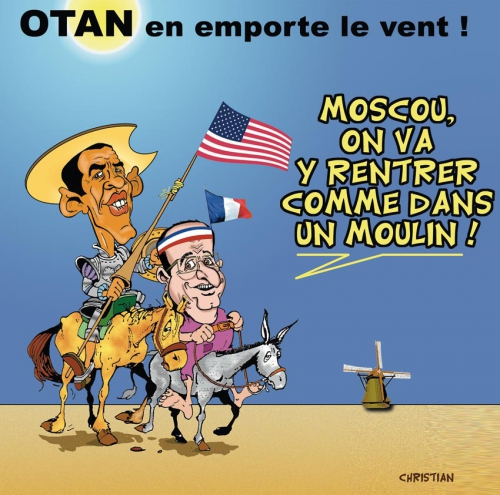
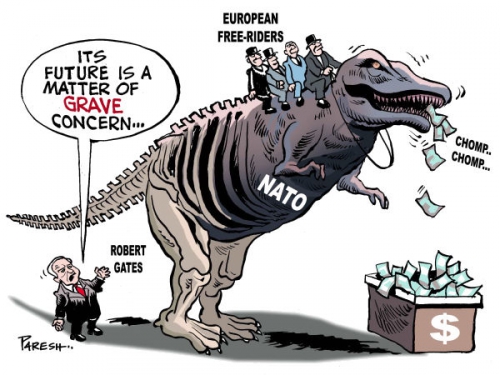
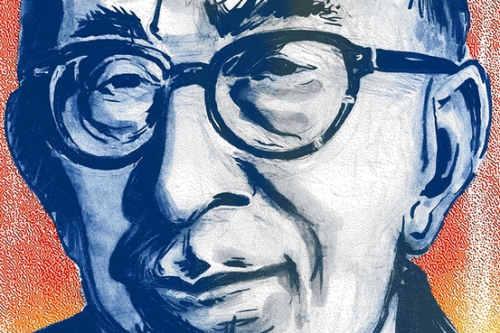
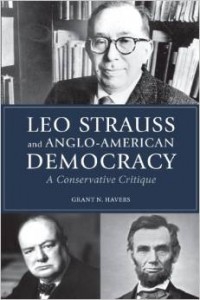 Amain pillar sustaining the practice of mass immigration is that Western nations are inherently characterized by a “civic” form of national membership. Western nations express the “natural” wishes of “man as man” for equal rights, rule of law, freedom of expression, and private property. Mainstream leftists and conservatives alike insist on the historical genuineness of this civic definition. This civic identity, they tell us, is what identifies the nations of Western civilization as unique and universal all at once. Unique because they are the only nations in which the idea of citizenship has been radically separated from any ethnic and religious background; and universal because these civic values are self-evident truths all humans want whenever they are given the opportunity to choose.
Amain pillar sustaining the practice of mass immigration is that Western nations are inherently characterized by a “civic” form of national membership. Western nations express the “natural” wishes of “man as man” for equal rights, rule of law, freedom of expression, and private property. Mainstream leftists and conservatives alike insist on the historical genuineness of this civic definition. This civic identity, they tell us, is what identifies the nations of Western civilization as unique and universal all at once. Unique because they are the only nations in which the idea of citizenship has been radically separated from any ethnic and religious background; and universal because these civic values are self-evident truths all humans want whenever they are given the opportunity to choose. Strauss’s vehement opposition to communism coupled with his enthusiastic defense of American democracy, as it stood in the 1950s, created the erroneous impression that he was a “right wing conservative.” But, as Havers explains, Strauss was no less critical of “right wing extremists” (who valued forms of citizenship tied to the nationalist customs and historical memories of a particular people) than of the New Left. Strauss believed that America was a universal nation in being founded on principles that reflected the “natural” disposition of all humans for life, liberty, and happiness. These principles were discovered first by the ancient Greeks in a philosophical and rational manner, but they were not particular to the Greeks; rather, they were “eternal truths” apprehended by Greek philosophers in their writings against tyrannical regimes. While these principles were accessible to all humans as humans, only a few great philosophers and statesmen exhibited the intellectual and personal fortitude to fully grasp and actualize these principles. Nevertheless, most humans possessed enough mental equipment as reasoning beings to recognize these principles as “rights” intrinsic to their nature, so long as they were given the chance to deliberate on “the good” life.
Strauss’s vehement opposition to communism coupled with his enthusiastic defense of American democracy, as it stood in the 1950s, created the erroneous impression that he was a “right wing conservative.” But, as Havers explains, Strauss was no less critical of “right wing extremists” (who valued forms of citizenship tied to the nationalist customs and historical memories of a particular people) than of the New Left. Strauss believed that America was a universal nation in being founded on principles that reflected the “natural” disposition of all humans for life, liberty, and happiness. These principles were discovered first by the ancient Greeks in a philosophical and rational manner, but they were not particular to the Greeks; rather, they were “eternal truths” apprehended by Greek philosophers in their writings against tyrannical regimes. While these principles were accessible to all humans as humans, only a few great philosophers and statesmen exhibited the intellectual and personal fortitude to fully grasp and actualize these principles. Nevertheless, most humans possessed enough mental equipment as reasoning beings to recognize these principles as “rights” intrinsic to their nature, so long as they were given the chance to deliberate on “the good” life. Havers also challenges the Straussian elevation of such figures as Lincoln, Churchill, Roosevelt, Hobbes, and Locke as proponents of an Anglo-American tradition founded on “timeless” Greek ideas. He shows that Christianity was the prevailing influence in the intellectual development and actions of all these men. Havers imparts on the readers a sense of disbelief as to how the Straussians ever managed to exert so much influence on American conservatism (to the point of transforming its original emphasis on traditions and communities into a call for the spread of universal values across the world), despite proposing views that were so blissfully indifferent to “readily available facts.”
Havers also challenges the Straussian elevation of such figures as Lincoln, Churchill, Roosevelt, Hobbes, and Locke as proponents of an Anglo-American tradition founded on “timeless” Greek ideas. He shows that Christianity was the prevailing influence in the intellectual development and actions of all these men. Havers imparts on the readers a sense of disbelief as to how the Straussians ever managed to exert so much influence on American conservatism (to the point of transforming its original emphasis on traditions and communities into a call for the spread of universal values across the world), despite proposing views that were so blissfully indifferent to “readily available facts.”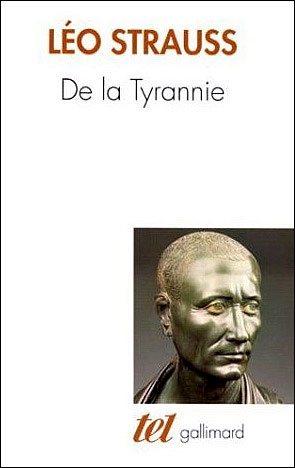 Now, Straussians could well respond that the Anglo-American identity is different, consciously dedicated to universal values, but, as Havers carefully shows, this emphasis on the philosophy of natural rights cannot be properly understood outside the religious ancestry of the founders, and (although Havers is less emphatic about this) outside the customs, institutions and ethnicity of the founders. As the Australian Frank Salter has written:
Now, Straussians could well respond that the Anglo-American identity is different, consciously dedicated to universal values, but, as Havers carefully shows, this emphasis on the philosophy of natural rights cannot be properly understood outside the religious ancestry of the founders, and (although Havers is less emphatic about this) outside the customs, institutions and ethnicity of the founders. As the Australian Frank Salter has written:

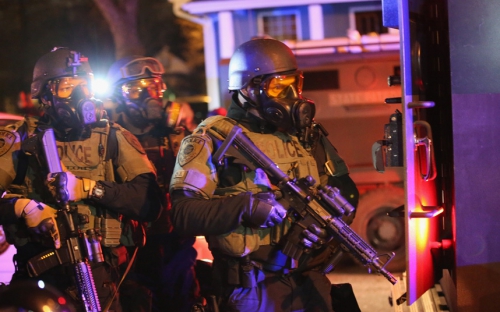




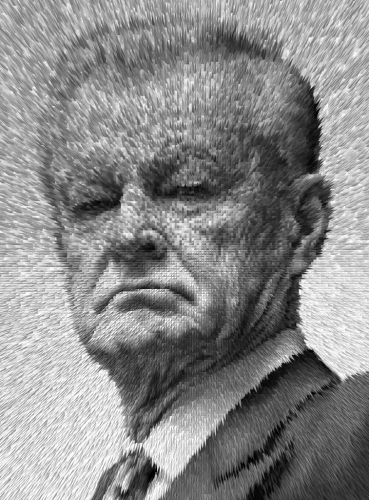
 Le Vrai Choix, à l’inverse, nous livre un regard plus actuel sur les options qui restent aux Etats-Unis s’ils souhaitent conserver leur rang mondial.
Le Vrai Choix, à l’inverse, nous livre un regard plus actuel sur les options qui restent aux Etats-Unis s’ils souhaitent conserver leur rang mondial.

